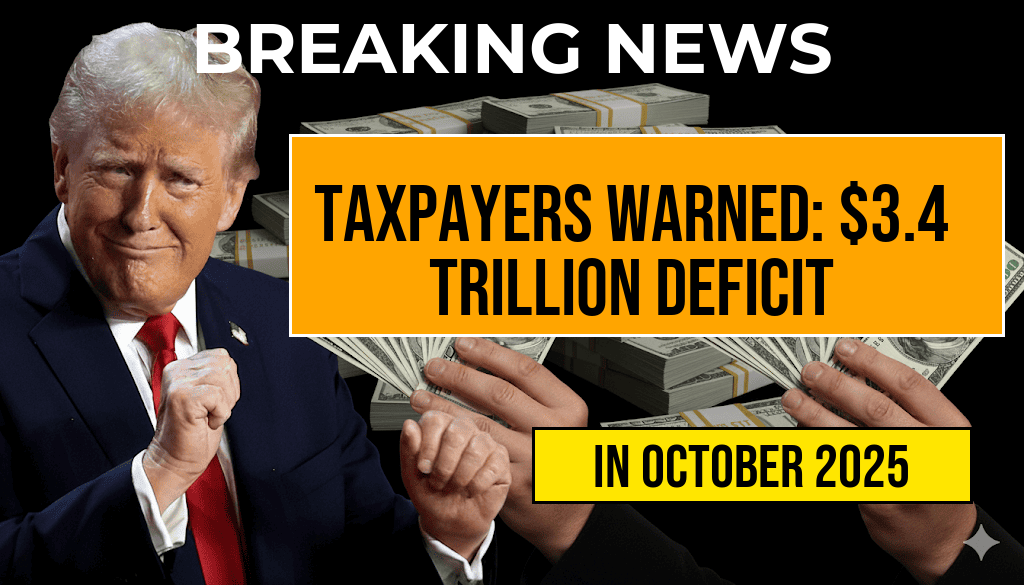Taxpayers are bracing for significant economic implications as a newly proposed fiscal initiative, often referred to as the “One Big Beautiful Bill,” is projected to increase the national deficit by a staggering $3.4 trillion over the next decade. This ambitious legislative package, which encompasses a variety of spending programs aimed at infrastructure, education, and healthcare, raises concerns among economists and policymakers about its long-term impact on federal finances. As discussions intensify in Congress, many are questioning whether the potential benefits of the bill will outweigh the financial burdens it could impose on future generations.
Understanding the Proposed Legislation
The “One Big Beautiful Bill,” championed by key Democratic leaders, aims to address critical areas of public need while simultaneously stimulating economic growth. The proposal includes:
- Infrastructure Investments: A significant allocation for repairing and upgrading roads, bridges, and public transportation systems.
- Healthcare Expansion: Increased funding for healthcare programs, including subsidies for low-income families and investments in mental health services.
- Education Funding: Enhanced financial support for public schools and programs aimed at improving access to higher education.
While proponents argue that these investments will yield substantial returns through job creation and improved public services, critics warn that the bill could exacerbate the already growing national debt.
The Economic Impact of Increased Deficit
According to the Congressional Budget Office (CBO), the national deficit is expected to reach unprecedented levels if the bill is enacted. The CBO’s analysis suggests that the cumulative deficit could expand significantly, with annual deficits projected to exceed $1 trillion in the near future. Economists emphasize that such an increase could lead to:
- Higher Interest Rates: As the government borrows more to fund its programs, the cost of borrowing could rise, impacting consumers and businesses alike.
- Inflationary Pressures: Increased government spending can lead to higher inflation, diminishing the purchasing power of the dollar.
- Future Tax Increases: To offset the growing deficit, taxpayers may face increased taxes in the years to come, raising concerns about economic equity.
Public Reaction and Political Landscape
Public sentiment regarding the bill remains divided. Supporters argue that investing in critical infrastructure and social programs is essential for long-term prosperity, while opponents express apprehension about the fiscal responsibility of such a large expenditure. A recent survey by the Pew Research Center indicated that a majority of Americans are concerned about rising national debt and its implications for future generations.
The political landscape surrounding the bill is equally contentious. With midterm elections approaching, lawmakers are under pressure to balance the needs of their constituents with the realities of federal budgeting. Some moderate Democrats and Republicans have voiced their concerns, advocating for a more measured approach to funding such expansive initiatives.
Conclusion
The debate over the “One Big Beautiful Bill” is poised to shape the nation’s economic trajectory significantly. As Congress weighs the potential benefits against the financial implications, taxpayers will be watching closely. With the proposed increase in the deficit projected to reach $3.4 trillion, the implications for fiscal policy and the broader economy are profound. Stakeholders from all sectors will need to engage in dialogue to ensure that the decisions made today do not jeopardize future economic stability.
For ongoing updates and in-depth analysis of this evolving situation, readers can refer to reliable sources such as The Washington Post and the New York Times.
Frequently Asked Questions
What is the ‘One Big Beautiful Bill’?
The ‘One Big Beautiful Bill’ refers to a proposed legislative package that aims to introduce significant changes to federal spending and tax policies.
How much is the deficit expected to increase due to this bill?
The bill is anticipated to increase the federal deficit by approximately $3.4 trillion over the next decade.
What are the potential impacts of this deficit increase?
An increase in the deficit could lead to higher interest rates, reduced government spending on essential services, and potential long-term economic instability.
Who supports the ‘One Big Beautiful Bill’?
Supporters of the bill include certain political leaders and advocacy groups who believe it will provide necessary funding for social programs and infrastructure improvements.
Are there any concerns about the bill?
Critics express concerns that the substantial increase in the deficit could have negative consequences for the economy, including inflation and reduced fiscal flexibility for future governments.

Leave a Reply